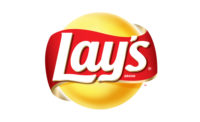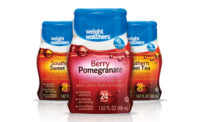Asking Y
As a whole, Generation Y will collectively spend more than $200 billion annually starting in 2017 and $10 trillion in their lifetimes, a significant portion of which will naturally be on foods and beverages.

In a study of more than 1,000 consumers, Y-Pulse and The Culinary Visions Panel conducted research to understand the factors that drive snack purchase decisions for consumers in different age groups and life stages. They opted to investigate snacking behavior because younger consumers, in particular, eat more small meals or snacks throughout the day, rather than traditional meals favored by prior generations. The study evaluated snacking behavior and motivation across nine different away-from-home segments.
This study defined Generation Y as consumers born between 1977-1994 and, in fact, broke that large demographic into smaller groups. Sharon Olson, executive director of Y-Pulse, explained the reasoning, “As members of this large demographic group have matured, it has become important to gain a deeper understanding of the factors that influence their food decisions away from home. Young consumers who are still finishing college and living at home behave differently than those in transition to their own financial independence or those who are heads of their own households with young children.”
The study says younger Millennials (those aged 19-25) snacked more often in the past year yet are also cooking at home more often. Their “snack throughout the day” mentality has supplanted any commitment to regular larger meals, and as a result, convenience stores are often their dining venue of choice.
Middle Millennials (those between 26-30) report they snack more during the late afternoon and before dinner. Of their generation, they are least likely to bring snacks from home and will, instead, turn to convenience stores and quick-service restaurants for snacking occasions.
Defined as those between 31-36, older Millennials report they snack mid-morning and late afternoon and no more often than a year ago. For snacks, they opt for cheese, nuts and baked items more often than any other age group, and they are more likely to bring snacks from home (33% make their own snacks at home). Nevertheless, 47% of this group chose convenience stores; 39% quick-service restaurants; and 20% from drug stores.
Overall, this generation prizes freshness above all other criteria in making their snack choices; 94% of Millennials regard freshness as important or very important. Craving, comfort and healthfulness were cited by 89%, 86% and 83%, respectively.
Dieting, on the other hand, appears of relatively little interest to the younger demographic. The NPD Group research finds a distinct generation gap in the dieting habits of American consumers. More than 25% of Baby Boomers are on a diet (the largest portion of any generation), but only 12% of Millennials (which NPD defines as those 18-34 in 2012) report they are dieting. "Millennials will diet more as they age, but the core dieters in this country are Boomers," reasons Harry Balzer, author of Eating Patterns in America and chief industry analyst for NPD. "But fewer of us are dieting. Americans are looking for other ways to define health."
In mid-2013, Cargill announced the results of its proprietary Cargill Gatekeeper Purchase Drivers Study of more than 1,000 consumers. Intended to explore parents' attitudes and drivers of food and beverage purchases for their children, the study found most parents (59%) are striving to keep meals healthy while still allowing for treats, including 66% of the Millennial generation, which Cargill’s study defined as between the ages of 18-32. Some 53% of Generation X parents (those between the ages of 33-47) shared the healthy-but-with-treats sentiment.
The study reasons that, as more young consumers become parents, “a balanced approach may become even more prevalent.” The Cargill survey results find a wide gap between parent satisfaction and intent to purchase a healthier version, suggesting an opportunity for bakers to innovate with better-for-you products in four baking categories: cookies, breads/rolls, crackers and snack bars. When looking to determine parents' purchase drivers for healthier bakery products, three factors resulted -- "seeking," "avoiding" and having a "clean" label.
Concentric Marketing studied the brand attitudes, shopping habits and preferences of Millennial consumers, finding a degree of divergence from some of the commonly held beliefs surrounding this group. For instance, they still prefer a traditional brick-and-mortar shopping experience over e-commerce for the majority of their regular purchases. When asked for the type of store they prefer to shop the most, nearly 60% cited the traditional grocery store and mass merchants.
Which segments of the grocery store see the most interest from Millennial shoppers? Dairy, produce, meat and frozen topped the list. Despite studies showing over a third of this generation is considered obese, Millennials in this study were very nutritionally knowledgeable, with nearly 60% citing the importance of monitoring caloric intake, protein, fat grams and sugar grams in their diets. They also contend they are eating out less and cooking at home five or more times per week.
Looking for a reprint of this article?
From high-res PDFs to custom plaques, order your copy today!





